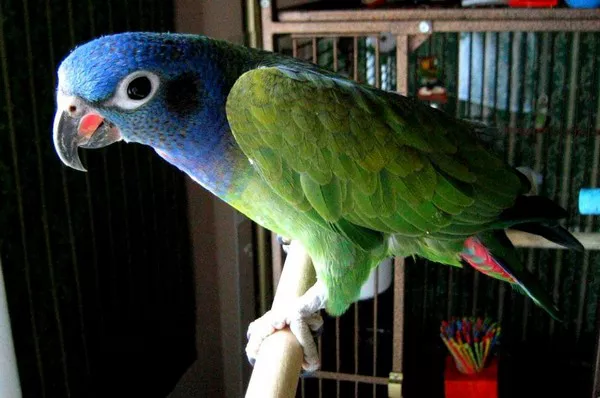Sun conures, known for their vibrant colors and playful personalities, have become increasingly popular as pets. However, potential owners often wonder about their temperament and whether sun conures exhibit aggressive behaviors. This article aims to provide an objective, in-depth analysis of sun conures’ behavior, exploring factors that contribute to aggression, social dynamics, and how to manage their temperament.
Understanding Sun Conures
Origin and Habitat
Sun conures (Aratinga solstitialis) are native to the northeastern region of South America, particularly in areas like Brazil, Guyana, and Suriname. These birds thrive in tropical forests, where they live in flocks, showcasing social behaviors that are crucial for their survival.
Physical Characteristics
Sun conures are easily identifiable by their bright yellow plumage, accented with shades of orange, green, and blue. Adult birds typically weigh between 100 to 120 grams and can reach a length of 30 cm (about 12 inches). Their striking appearance is often a significant factor in their popularity as pets.
Behavior in the Wild
In their natural habitat, sun conures are highly social creatures that live in large flocks. They engage in complex social interactions, including vocalizations and mutual grooming, which strengthen their bonds. Understanding these behaviors in the wild helps us grasp their needs and temperament in captivity.
Temperament of Sun Conures
General Personality Traits
Sun conures are known for their lively and affectionate nature. They are often described as playful, curious, and intelligent. However, their exuberance can sometimes be misinterpreted as aggression, especially if they are not adequately socialized or if their needs are unmet.
Social Structure and Behavior
In flocks, sun conures exhibit a hierarchy, with more dominant birds often displaying assertive behaviors. This social structure influences their interactions with humans and other pets. Understanding their social dynamics is essential for recognizing and mitigating aggressive behaviors.
Factors Contributing to Aggression
Socialization
One of the primary factors influencing a sun conure’s temperament is socialization. Birds that are not exposed to various people, environments, and situations during their formative weeks may develop fearful or aggressive tendencies. Early and positive interactions are crucial for a well-adjusted pet.
Environment
The environment in which a sun conure is kept can also impact its behavior. A stimulating, safe, and spacious habitat encourages healthy behaviors, while a cramped or monotonous environment may lead to frustration and aggression.
Hormonal Influences
Hormonal changes, particularly during mating seasons, can lead to increased aggression in sun conures. This is especially noticeable in mature birds, which may become territorial and protective of their space. Understanding these cycles can help owners manage aggressive behaviors during specific times of the year.
Health Issues
Underlying health problems can also contribute to changes in behavior. Pain or discomfort may cause a normally gentle bird to act aggressively. Regular veterinary check-ups are essential to rule out health issues and maintain a sun conure’s well-being.
Identifying Aggression in Sun Conures
Types of Aggressive Behavior
Aggression in sun conures can manifest in several ways, including:
Vocal Aggression: Loud squawking or screeching can be a sign of distress or a warning to perceived threats.
Physical Aggression: Biting or lunging at hands or other pets is a clear indication of discomfort or territoriality.
Feather Plucking: Although primarily a sign of stress or health issues, feather plucking can also be a reaction to aggression triggered by environmental factors.
Recognizing Triggers
Identifying triggers for aggressive behavior is crucial for management. Common triggers include:
- Sudden movements or loud noises
- Presence of unfamiliar people or pets
- Changes in routine or environment
- Lack of mental stimulation or physical exercise
Managing Aggression
Positive Reinforcement Training
Positive reinforcement is one of the most effective methods for managing and modifying aggressive behaviors in sun conures. This technique involves rewarding desired behaviors with treats, praise, or affection, encouraging the bird to repeat those behaviors.
See Also: Why Is My Sun Conure Making Weird Noises?
Environmental Enrichment
Providing an enriching environment helps mitigate aggression by stimulating the bird’s mind and body. Consider incorporating the following:
Toys: Rotate toys regularly to keep your bird engaged.
Social Interaction: Spend quality time interacting with your conure, encouraging play and bonding.
Flight Space: Allow for supervised flight time outside of the cage to burn off excess energy.
Understanding Body Language
Recognizing a sun conure’s body language is vital for preventing aggression. Signs of stress or discomfort can include:
- Fluffed feathers
- Raised wings
- Rapid tail movements
- Loud vocalizations
Responding appropriately to these signals can help prevent aggressive encounters.
When to Seek Professional Help
If aggressive behaviors persist despite your best efforts, it may be time to consult an avian veterinarian or an animal behaviorist. These professionals can provide tailored strategies for managing aggression based on your specific situation.
Veterinary Evaluation
A thorough veterinary evaluation can help identify any underlying health issues that may be contributing to aggressive behaviors. Behavioral changes often correlate with health problems, and addressing these can be key to restoring a bird’s good nature.
Behaviorists
Animal behaviorists can offer personalized training plans and interventions. They can observe the bird in its environment and provide insights that may not be apparent to the owner.
Conclusion
In conclusion, sun conures are not inherently aggressive birds, but their temperament can be influenced by various factors, including socialization, environment, health, and hormonal changes. Understanding these factors and implementing effective management strategies can help mitigate aggressive behaviors and promote a happy, healthy relationship between sun conures and their owners. With the right care, socialization, and training, sun conures can be affectionate and engaging companions.
Related Topics:






















